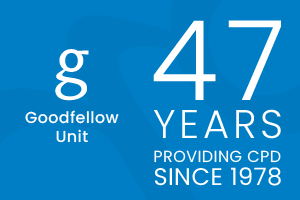Surgical mesh has been used in the surgical treatment of conditions such as hernia, urinary incontinence, rectal, bowel and vaginal prolapse.
This webinar will cover concerns regarding surgical mesh and how women may present if they have experienced harm from the placement of mesh for urinary incontinence or pelvic organ prolapse. Using case studies, we will discuss how to identify surgical mesh injuries (including common and uncommon signs and symptoms) and give guidance on practical aspects of providing care for people with mesh harm.
Presenter

Niki Dykes
Niki is an Obstetrician and Gynaecologist who has completed subspecialty training to become an accredited Specialist Urogynaecologist. During training she gained valuable experience in the multidisciplinary management of complex pelvic health conditions including mesh complications. Niki has been involved in several international Urogynaecology committees, and has spoken at national and international conferences on topics relating to Urogynaecology. She works in the public health system for Te Whatu Ora Waitemata, and at OneSixOne Medical Group in private.
Presenter

Sum Sum Lo
Sum Sum is a Consultant Urologist at Waitemata DHB and works at both Waitakere and North Shore Hospitals. She also consults at 161 Urology and Canopy. Her special interests include female and male urethral stricture disease, primary and recurrent female and male incontinence, primary and recurrent pelvic organ prolapse, vaginal mesh and mesh sling removals, and general urological conditions including urological infections, stones, functional disorders and cancers.



